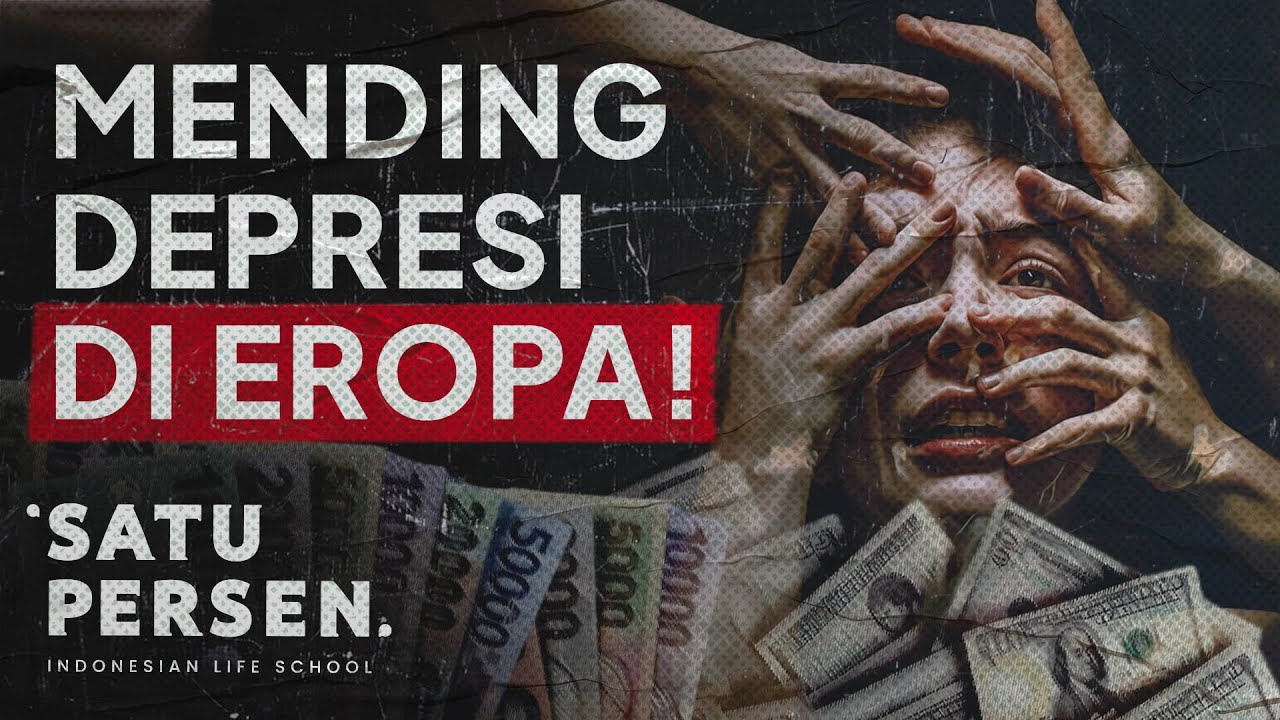GJ 117 | DPR, MK,MA MILIK KELUARGA MANA?
Summary
TLDRThe video discusses the growing trend of Indonesians migrating abroad, especially to Singapore, due to perceived better living conditions and healthcare. The speaker criticizes Indonesia's systemic issues, including corruption, elitism, and inefficiency in public services, which lead to high medical costs and slow legal processes. The video highlights the dissatisfaction with the current state of governance in Indonesia and questions the effectiveness of the political system, suggesting that the country's leaders prioritize their interests over those of the general population.
Takeaways
- 🇮🇩 Many Indonesians are moving abroad, particularly to Singapore, with around 1,000 people moving annually.
- 😌 The reason for this migration is that living abroad, especially in Singapore, is perceived as more pleasant and accommodating.
- 🧑⚕️ There is a trend of Indonesians seeking medical treatment abroad due to lower costs and less invasive procedures compared to Indonesia.
- 💊 The high cost of medical care in Indonesia is attributed to corruption and unethical practices between doctors and pharmaceutical companies.
- 🛑 The script criticizes the Indonesian government for neglecting its citizens and only catering to the elite class.
- 🚔 Issues such as land disputes, crimes, and zoning problems are reportedly ignored by the authorities, leading to a lack of justice for the common people.
- 💼 The speaker argues that laws in Indonesia are primarily designed to serve the interests of the elite, not the general population.
- 👨⚖️ Attempts to challenge environmental damage or other major issues through legal channels are often futile and slow.
- 📱 Efforts to expose injustices through viral campaigns are met with harsh penalties under various restrictive laws.
- 🤷 The script questions the legitimacy of political representation, claiming that the political system is controlled by the elite, making it difficult for ordinary people to bring about change.
Q & A
Why do many Indonesian citizens choose to move abroad, especially to Singapore?
-According to the script, many Indonesians move abroad, particularly to Singapore, because they find it more enjoyable and less restrictive compared to Indonesia. They feel they can maintain their Indonesian identity without facing discrimination.
What are some specific examples of discrimination faced by Indonesians within their own country?
-The script mentions that in Indonesia, individuals might be questioned about their religion if they have slightly Chinese features or about their cosmetics if they have darker skin, indicating a form of racial or social discrimination.
What trend among Indonesians is mentioned as a precursor to the trend of moving abroad?
-The script mentions that there has been a trend of Indonesians seeking medical treatment abroad, as it is often cheaper and comes with fewer unnecessary procedures compared to treatment in Indonesia.
What is the reason given for the high cost of medical treatment in Indonesia?
-The high cost of medical treatment in Indonesia is attributed to a hidden phenomenon of corruption, where doctors and pharmacists are involved in unethical practices, leading to inflated medical expenses.
What criticism does the speaker have about the way the Indonesian government handles the country's problems?
-The speaker criticizes the Indonesian government for neglecting the needs of the general population and only focusing on the interests of the elite. Problems like crime and land disputes are often ignored or unresolved.
What does the speaker imply about the Indonesian legal and political system?
-The speaker implies that the Indonesian legal and political systems are biased towards the elite. Legal processes for the elite's benefit are expedited, while issues concerning ordinary citizens are delayed or ignored.
How does the speaker describe the government's response to public grievances or protests?
-The government, according to the speaker, responds to public grievances or protests with legislation that suppresses freedom of speech and public expression, such as internet access restrictions and the criminalization of viral content.
What is the role of the DPR (Indonesian House of Representatives) according to the speaker, and how does it relate to public interest?
-The speaker argues that the DPR, which claims to represent the people, actually serves the interests of the elite, not the general public. Laws are made to protect the elite from criticism and maintain their power.
What alternatives does the speaker suggest for those disillusioned with the current state of Indonesia?
-While the speaker contemplates the idea of moving abroad, they also suggest that instead of changing nationality, it might be more impactful to strive for significant political change from within the country, possibly even aiming to become the president.
What is the speaker's final stance on changing nationality versus staying and fighting for change in Indonesia?
-The speaker expresses a preference for staying in Indonesia and attempting to make a difference, rather than changing nationality. They believe in the potential to enact change through political involvement and leadership.
Outlines

このセクションは有料ユーザー限定です。 アクセスするには、アップグレードをお願いします。
今すぐアップグレードMindmap

このセクションは有料ユーザー限定です。 アクセスするには、アップグレードをお願いします。
今すぐアップグレードKeywords

このセクションは有料ユーザー限定です。 アクセスするには、アップグレードをお願いします。
今すぐアップグレードHighlights

このセクションは有料ユーザー限定です。 アクセスするには、アップグレードをお願いします。
今すぐアップグレードTranscripts

このセクションは有料ユーザー限定です。 アクセスするには、アップグレードをお願いします。
今すぐアップグレード関連動画をさらに表示

Banyak Masyarakat Indonesia Memilih Berobat ke Luar Negeri, Kenapa? | 60 Menit Special Report

The #KaburAjaDulu Trend: Why Are Indonesians Talking About Moving Abroad?

Warga Gentar, #KaburAjaDulu Makin Melebar

#KABURAJADULU | LEBIH MEMILIH KERJA DI LUAR NEGRI DARI PADA DALAM NEGRI | kenapa ya?

Why Immigrants Are Leaving Australia in Record Numbers?

Hidup di Luar Negeri Jauh Lebih Enak Daripada di Indonesia!
5.0 / 5 (0 votes)
